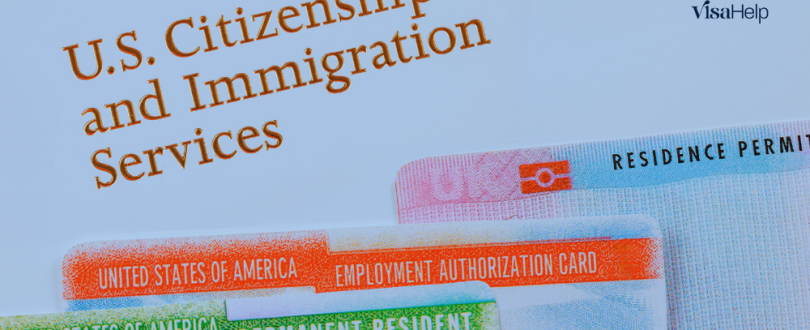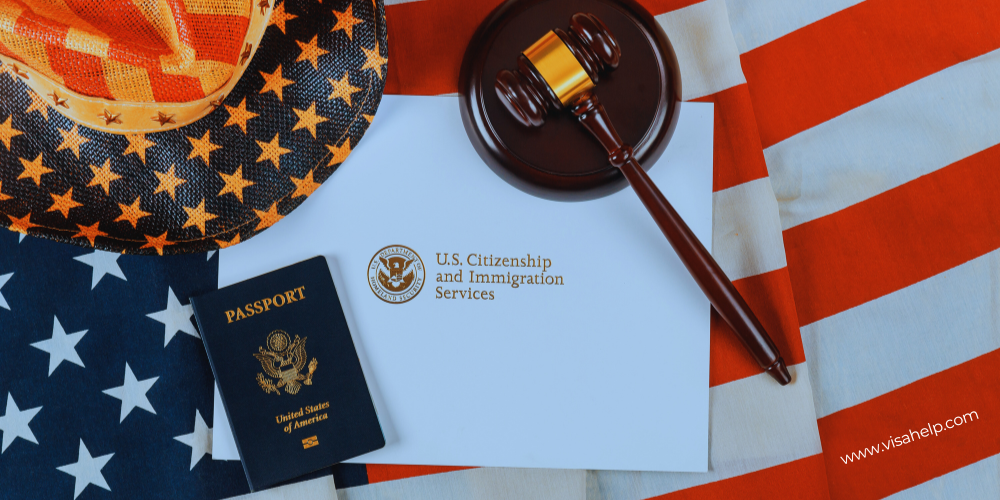
For travelers, immigrants, and anyone involved in the U.S. immigration process, a significant policy shift from the U.S. Citizenship and Immigration Services (USCIS) warrants attention. USCIS’s decision to eliminate the inclusion of ‘free’ Employment Authorization Document (EAD) and Advance Parole (AP) in I-485 applications marks a major change in the application process for adjusting status to permanent residence. Let’s unpack what this means.
Background: The USCIS Fee Structure
The fee structure of the U.S. Citizenship and Immigration Services (USCIS) plays a crucial role in its operations. As a largely self-funded entity, USCIS relies primarily on the fees collected from its applications and services, rather than federal funding. This structure makes the agency somewhat unique among government entities. The fees collected are used for a range of services, including processing immigration applications, running biometric services, and maintaining staff and facilities. Periodic adjustments to this fee structure are necessary for the agency to keep pace with changing operational costs and to ensure the effective delivery of its services.

What Are EAD and Advance Parole?
- Employment Authorization Document (EAD): Often referred to as a work permit, the EAD is a document issued by USCIS that grants permission to non-citizens to work legally in the United States for a specified period. This is crucial for those waiting for their permanent residency applications to be processed, as it allows them to be gainfully employed during this time.
- Advance Parole (AP): AP is permission granted by USCIS to non-citizens with pending immigration applications (like adjustment of status) to re-enter the United States after traveling abroad. It’s important because leaving the U.S. without AP while having a pending immigration application can lead to the abandonment of that application.
The Previous ‘Bundled’ Fee System
Previously, USCIS’s fee for the I-485 application (the form used for adjusting immigration status to permanent residency) was inclusive or ‘bundled’ with the fees for EAD and AP. This meant that when an individual applied for an adjustment of status, the fee they paid covered not just the processing of the I-485 form but also the initial application for an EAD and an AP. This bundled system was beneficial to applicants as it simplified the payment process and reduced the overall cost of obtaining necessary authorizations during the adjustment period.
The New Policy: Unbundling of Fees
The recent policy change by USCIS has led to the unbundling of these fees. Now, applicants must pay separate fees for the I-485 application, EAD, and AP. This shift represents a significant increase in the overall cost of the adjustment of status process for many applicants. The change necessitates more financial planning and possibly extends the timeframe and complexity of the process, as applicants need to prepare and submit separate applications for each of these documents, each with its own fee.
Financial Implications for Applicants
The unbundling of fees for the I-485 application, EAD, and Advance Parole (AP) has significant financial implications for applicants. Prior to this policy change, a single fee covered all these applications, making it somewhat more manageable for applicants financially. With the separation of these fees, individuals now face higher total costs. This increase can be particularly challenging for those who need to renew their EAD and AP multiple times while their Green Card applications are pending. Applicants must now budget for each of these applications separately, which can add up to a substantial amount, especially for families with multiple members undergoing the immigration process.
Procedural Changes for Applicants
The new policy also introduces procedural changes. Applicants will need to file separate applications for EAD and AP, in addition to the I-485. This means more paperwork and potentially more time spent on application preparation. Applicants need to be aware of different processing times and expiration dates for each document, adding complexity to an already intricate process. Staying organized and vigilant with application timelines becomes even more crucial to avoid gaps in employment authorization or travel ability.
Broader Implications
Beyond the immediate financial and procedural impacts, this policy change could have broader implications for U.S. immigration policy. It may signal a shift towards a more cost-recovery model in immigration services, which could affect future policy decisions and fee adjustments. This could also impact the accessibility of U.S. immigration processes, particularly for lower-income applicants or those from less privileged backgrounds. The increased financial burden may deter some potential applicants, which could have long-term effects on immigration patterns and the diversity of the immigrant population in the U.S.
Navigating the Change: Tips and Resources
For those navigating these changes, here are some tips and resources:
- Budget Planning: Carefully plan your budget to include the separate fees for EAD, AP, and the I-485 application.
- Stay Informed: Regularly check the USCIS website for the latest information on fee structures and policy updates.
- Organization: Keep meticulous records of all your application documents, fees paid, and expiration dates.
- Seek Professional Advice: Consider consulting with an immigration attorney or accredited representative who can provide guidance tailored to your specific situation.
- Utilize Free Resources: Look for free or low-cost resources provided by community organizations, non-profits, or legal aid societies that offer assistance with immigration applications.
- Timing: If possible, apply as early as you can to avoid any delays that might affect your employment or travel plans.
While these changes pose new challenges, assistance is available. Services like Visa specialize in navigating the complexities of visa and immigration applications. Visahelp offers personalized support, helping applicants understand requirements, fill out paperwork accurately, and manage the application process efficiently. In a landscape of evolving immigration policies, having an expert guide can make a significant difference.
Stay informed, plan ahead, and consider seeking professional assistance to navigate these changes smoothly.

